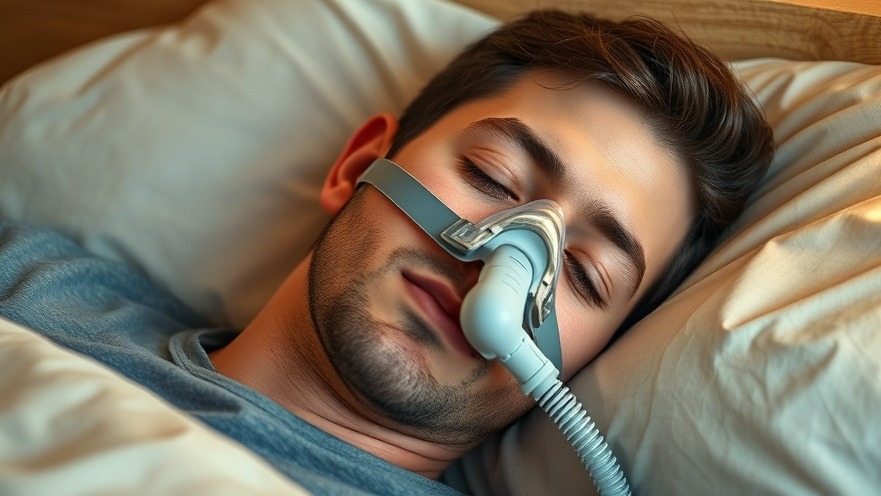
A Concerning Connection: Sleep Apnea and Macular Degeneration
Recent research highlights a troubling link between obstructive sleep apnea (OSA) and neovascular age-related macular degeneration (AMD). Individuals diagnosed with moderate to severe OSA might face significantly higher odds of developing this serious eye condition. This insight, rooted in a study conducted by researchers at the Royal Victorian Eye and Ear Hospital and the University of Melbourne, has critical implications for those in the healthcare sector, particularly for concierge medical practices aiming to provide holistic patient care.
Understanding the Impact of Nocturnal Hypoxia
Sleep apnea causes intermittent interruptions in breathing during sleep, leading to nocturnal hypoxia—low oxygen levels at night. This phenomenon is frequently overlooked, especially among older adults who are at heightened risk of AMD. The study pointed out that patients with moderate to severe OSA had a fivefold increased odds of having neovascular AMD compared to those without sleep apnea.
The Importance of Patient Screening and Detection
While sleep questionnaires are commonly used for screening, the study emphasized their subjective nature and variability. Instead, researchers are advocating for more objective testing methods like overnight pulse oximetry to assess patients’ oxygen levels during sleep. For concierge practices, implementing such proactive screening measures can lead to earlier detection of both OSA and AMD, potentially improving patient outcomes.
Future Directions: Mitigating Risk Factors
Identifying additional modifiable risk factors, such as managing OSA, can enhance traditional AMD risk mitigation strategies. Plans are in motion for larger studies that will include comprehensive screening for OSA among AMD patients, enabling a robust understanding of treatment pathways and preventative methods.
The Role of Concierge Practices in Comprehensive Care
Concierge medical practices are uniquely positioned to address these health risks through personalized care. By educating patients about the connection between OSA and AMD, these practices can foster deeper patient relationships and emphasize the importance of managing sleep health in the context of overall wellness.
Stay Ahead by Staying Informed
For concierge medical practice owners, understanding the implications of sleep apnea on conditions like AMD allows for more comprehensive patient engagement strategies. Encourage your patients to prioritize sleep health; it could provide essential insights into their ocular health and broader well-being.
 Add Row
Add Row  Add
Add 






Write A Comment